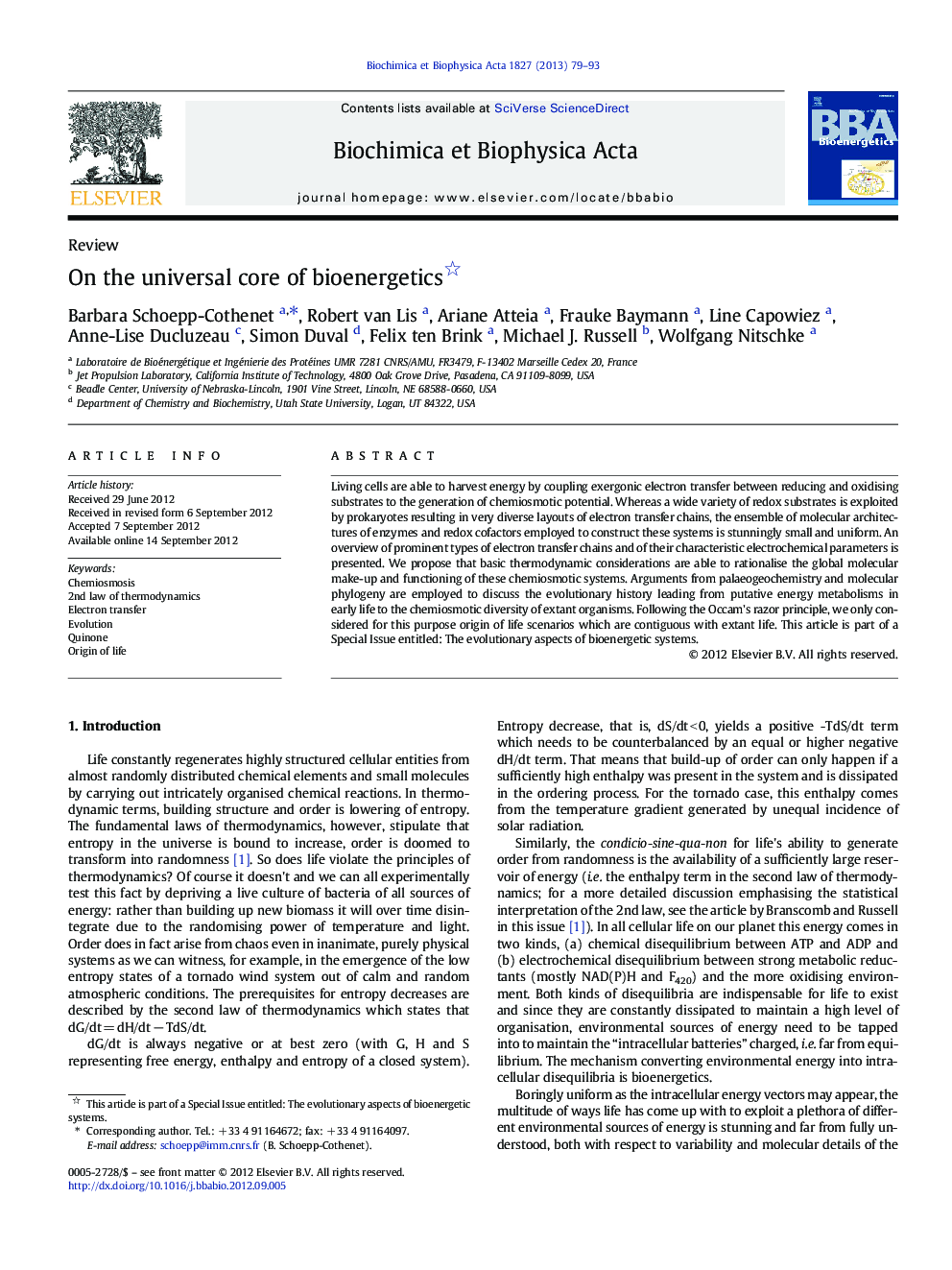| کد مقاله | کد نشریه | سال انتشار | مقاله انگلیسی | نسخه تمام متن |
|---|---|---|---|---|
| 1942280 | 1052601 | 2013 | 15 صفحه PDF | دانلود رایگان |

Living cells are able to harvest energy by coupling exergonic electron transfer between reducing and oxidising substrates to the generation of chemiosmotic potential. Whereas a wide variety of redox substrates is exploited by prokaryotes resulting in very diverse layouts of electron transfer chains, the ensemble of molecular architectures of enzymes and redox cofactors employed to construct these systems is stunningly small and uniform. An overview of prominent types of electron transfer chains and of their characteristic electrochemical parameters is presented. We propose that basic thermodynamic considerations are able to rationalise the global molecular make-up and functioning of these chemiosmotic systems. Arguments from palaeogeochemistry and molecular phylogeny are employed to discuss the evolutionary history leading from putative energy metabolisms in early life to the chemiosmotic diversity of extant organisms. Following the Occam's razor principle, we only considered for this purpose origin of life scenarios which are contiguous with extant life. This article is part of a Special Issue entitled: The evolutionary aspects of bioenergetic systems.
► Diversity of electrochemical regimes explored by bioenergetic chains
► Availability of redox substrates through 4 billion years of life
► Quinones and methanophenazines, crucial elements of almost all bioenergetic chains
► Limited set of protein building blocks used by life to construct all the enzymes
► Phylogeny as a tool for the elucidation of the bioenergetic evolutionary history
Journal: Biochimica et Biophysica Acta (BBA) - Bioenergetics - Volume 1827, Issue 2, February 2013, Pages 79–93